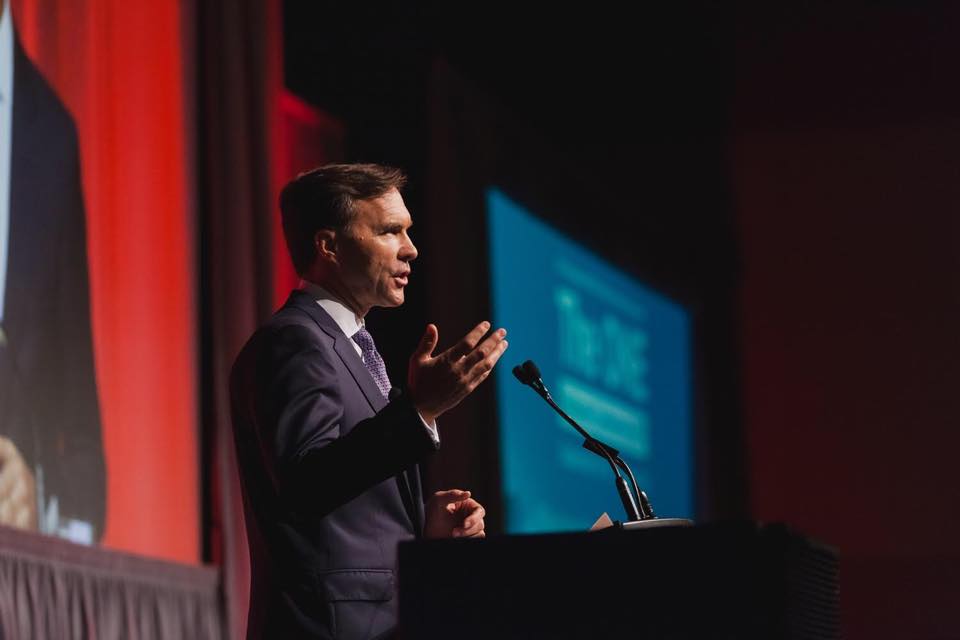Canada News
Tories are making ‘partisan’ arguments about intent to help media: Morneau

Morneau offered a little more insight into the government’s objective Thursday morning at an Economic Club of Canada event in Ottawa, saying the change in the media landscape has been dramatic and strong journalism is essential for a healthy democracy. (File Photo: Bill Morneau/Facebook)
OTTAWA — Federal Finance Minister Bill Morneau says the Conservatives are making spurious partisan arguments about his plan to help the news industry with tax measures.
Morneau offered a little more insight into the government’s objective Thursday morning at an Economic Club of Canada event in Ottawa, saying the change in the media landscape has been dramatic and strong journalism is essential for a healthy democracy.
But details on how the new incentives will work are scant. Bitter politics have quickly filled the void.
“What guarantee do we have that they will not use this slush fund as a gigantic propaganda machine for the Liberal party” Conservative finance critic Pierre Poilievre chirped in question period, later adding, “Isn’t it true that this government just believes the job of the media is to shower praise on the prime minister and the job of taxpayers is to pay for it all?”
The Conservatives have also taken to social media to say that journalists will be bought. Conservative MP Michelle Rempel tweeted: “Most news stories in Canada will have to carry the label ‘sponsored content — Trudeau’ because Justin Trudeau is spending half a billion dollars to buy the news. RIP free speech. RT if you stand opposed to this!”
The federal government announced Wednesday that it wants to help the struggling industry with tax credits and tax incentives valued at nearly $600 million over the next five years.
The government said it will establish an independent panel of journalists to define journalism standards and determine eligibility for the tax benefits.
The goal is for the program to be funded by the government but have no role for politicians to decide what constitutes a media outlet or who would be eligible. That way, the government hopes to avoid the appearance of conflict between a free press and government influence.
The program will likely cost the federal treasury about $45 million in 2019-20, rising to $165 million in 2023-24.
It’s expected most of the expense will be for a new tax credit for media organizations to support the labour costs of producing original news content, but finance officials said specific amounts won’t be known until eligibility details have been decided.
Another temporary tax credit will be created for subscribers to digital news media sites.
Plus, the government will allow non-profit media organizations to apply for charitable status, enabling them to seek donations for which they could issue tax receipts. Non-profit media with such status would also be eligible to receive funding from other registered charities. La Presse, Canada’s largest French daily newspaper, moved to become a non-profit entity earlier this year, severing ties with the Power Corp. conglomerate owned by the Desmarais family.
“What we’re trying to say is that for journalists of all stripes — reputable journalists of all stripes — we want to make sure we have a free press so that they can report out to Canadians and that holds our feet to the fire, which is a necessary part of a democracy,” Morneau said Thursday.
The full details of the program won’t be available until the next federal budget, after the government receives advice from its panel.
The Conservatives were quick to criticize the idea of the government picking panel members, arguing that the Liberals will indirectly get to decide which organizations survive, and accusing them of trying to buy off the media in an election year.
Martin O’Hanlon, president of CWA Canada, a union that represents 6,000 workers in the media industry including The Canadian Press, said the proposal is “not as political as it seems.”
“This is being driven by senior bureaucrats, which is good,” said O’Hanlon.
O’Hanlon said his chief criticism of the announcement is that few details have been provided.
Government officials told The Canadian Press that they are determining details about the panel, but did not offer any new information on Thursday.
Edward Greenspon, a former journalist who is now president of the Public Policy Forum think-tank, said the criticism that has surged over the past 24 hours is misplaced.
“In some ways, I think there’s a little bit of an overreaction to the concern of public money. The CBC has had public money for about 80 years and that hasn’t tainted its ability to do journalism,” he said.
The Public Policy Forum has researched and published a key report on how government can best help the news industry.
Morneau said the opposition’s argument that his government is being opportunistic by appointing a panel before an election is simply “partisan.”
“I don’t even know how it’s sustained because my experience is that journalists don’t necessarily agree with the things that we do and I don’t think that we can, in any way, change that reality,” said Morneau.





















